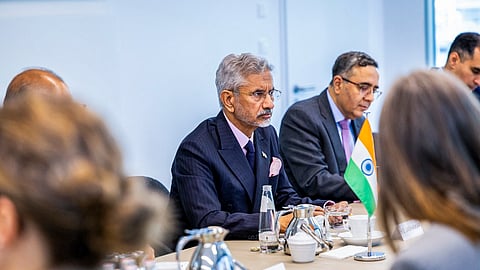

NEW DELHI: External Affairs Minister S Jaishankar strongly criticised Europe for its historical support of military regimes in Pakistan, despite the country's persistent cross-border aggression and fragile democratic record.
Speaking to the German news outlet Politiken during his visit to Berlin, following earlier stops in the Netherlands and Denmark, Jaishankar highlighted the paradox in Western foreign policy.
In his meetings with German Chancellor Friedrich Merz and other senior officials, he discussed strengthening strategic ties, counter-terrorism cooperation, resilient supply chains, and broader global security issues.
“Our borders have been violated by Pakistan in Kashmir ever since our independence in 1947,” Jaishankar said.
“And what have we seen in the eight decades since then?” he asked. “That large, democratic Europe, to use your own term, has stood side by side with military dictatorships in the region,” he added.
Jaishankar was direct in his criticism of Western powers, especially European nations, for aligning themselves with Pakistan’s military rulers over the decades. “No one has supported the military regime—and undermined democracy in Pakistan in so many ways—as much as the West,” he said.
India has long argued that Pakistan’s military establishment plays a central role in enabling cross-border terrorism, particularly in Kashmir, Afghanistan, and across South Asia. New Delhi maintains that Pakistan's army dominates the political landscape, allowing terror networks to operate without restraint.
The most striking example came in 2011, when Osama bin Laden was found living undetected in Abbottabad, a short distance from Pakistan’s premier military academy.
On broader global alliances, Jaishankar cited the Quad—a strategic grouping of India, the US, Japan, and Australia—as a model of contemporary, interest-driven collaboration. He praised it as a “flexible” arrangement suited to the demands of a rapidly evolving geopolitical landscape.